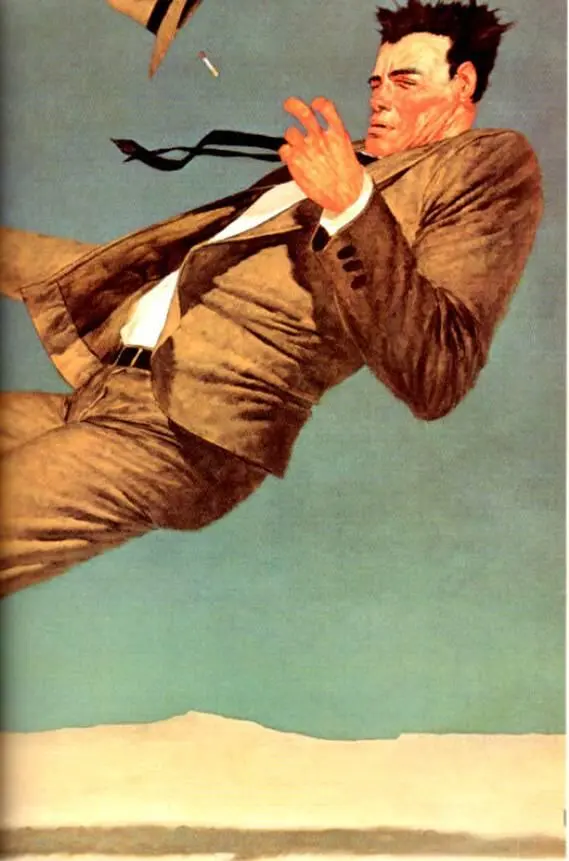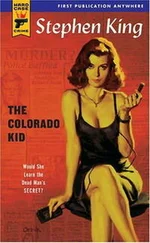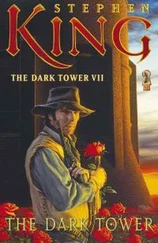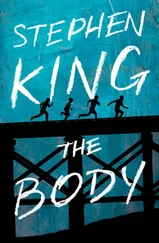Стивен Кинг - The Drawing of the Three
Здесь есть возможность читать онлайн «Стивен Кинг - The Drawing of the Three» весь текст электронной книги совершенно бесплатно (целиком полную версию без сокращений). В некоторых случаях можно слушать аудио, скачать через торрент в формате fb2 и присутствует краткое содержание. Жанр: Фэнтези, на английском языке. Описание произведения, (предисловие) а так же отзывы посетителей доступны на портале библиотеки ЛибКат.
- Название:The Drawing of the Three
- Автор:
- Жанр:
- Год:неизвестен
- ISBN:нет данных
- Рейтинг книги:3 / 5. Голосов: 1
-
Избранное:Добавить в избранное
- Отзывы:
-
Ваша оценка:
- 60
- 1
- 2
- 3
- 4
- 5
The Drawing of the Three: краткое содержание, описание и аннотация
Предлагаем к чтению аннотацию, описание, краткое содержание или предисловие (зависит от того, что написал сам автор книги «The Drawing of the Three»). Если вы не нашли необходимую информацию о книге — напишите в комментариях, мы постараемся отыскать её.
Synopsis: Part II an epic saga. Roland, the last gunslinger, encounters three mysterious doorways on the beach. Each one enters into a different person living in New York. Through these doorways, Roland draws the companions who will assist him on his quest to save the Dark Tower.
The Drawing of the Three — читать онлайн бесплатно полную книгу (весь текст) целиком
Ниже представлен текст книги, разбитый по страницам. Система сохранения места последней прочитанной страницы, позволяет с удобством читать онлайн бесплатно книгу «The Drawing of the Three», без необходимости каждый раз заново искать на чём Вы остановились. Поставьте закладку, и сможете в любой момент перейти на страницу, на которой закончили чтение.
Интервал:
Закладка:
"I don't understand you, Eddie."
"Sure you do. Balazar thinks I've got his goods? If he thinks that, he must be stupid, and I know he's not stupid."
"I don't know what he thinks," Andolini said serenely. "It's not my job to know what he thinks. He knows you had his goods when you left the Islands, he knows Customs grabbed you and then let you go, he knows you're here and not on your way to Riker's, he knows his goods have to be somewhere."
"And he knows Customs is still all over me like a wetsuit on a skin-diver, because you know it, and you sent him some kind of coded message on the truck's radio. Something like 'Double cheese, hold the anchovies,' right, Jack?"
Jack Andolini said nothing and looked serene.
"Only you were just telling him something he already knew. Like connecting the dots in a picture you can already see what it is."
Andolini stood in the golden sunset light that was slowly turning furnace orange and continued to look serene and continued to say nothing at all.
"He thinks they turned me. He thinks they're running me. He thinks I might be stupid enough to run. I don't exactly blame him. I mean, why not? A smackhead will do anything. You want to check, see if I'm wearing a wire?"
"I know you're not," Andolini said. "I got something in the van. It's like a fuzz-buster, only it picks up short-range radio transmissions. And for what it's worth, I don't think you're running for the Feds."
"Yeah?"
"Yeah. So do we get in the van and go into the city or what?"
"Do I have a choice?"
No, Roland said inside his head.
"No," Andolini said.
Eddie went back to the van. The kid with the basketball was still standing across the street, his shadow now so long it was a gantry.
"Get out of here, kid," Eddie said. "You were never here, you never saw nothing or no one. Fuck off."
The kid ran.
Col was grinning at him.
"Push over, champ," Eddie said.
"I think you oughtta sit in the middle, Eddie."
"Push over," Eddie said again. Col looked at him, then looked at Andolini, who did not look at him but only pulled the driver's door closed and looked serenely straight ahead like Buddha on his day off, leaving them to work the seating arrangements out for themselves. Col glanced back at Eddie's face and decided to push over.
They headed into New York―and although the gunslinger (who could only stare wonderingly at spires even greater and more graceful, bridges that spanned a wide river like steel cobwebs, and rotored air-carriages that hovered like strange man-made insects)

did not know it, the place they were headed for was the Tower.
9
Like Andolini, Enrico Balazar did not think Eddie Dean was running for the Feds; like Andolini, Balazar knew it.
The bar was empty. The sign on the door read CLOSED TONITE ONLY. Balazar sat in his office, waiting for Andolini and Col Vincent to arrive with the Dean kid. His two personal bodyguards, Claudio Andolini, Jack's brother, and 'Cimi Dretto, were with him. They sat on the sofa to the left of Balazar's large desk, watching, fascinated, as the edifice Balazar was building grew. The door was open. Beyond the door was a short hallway. To the right it led to the back of the bar and the little kitchen beyond, where a few simple pasta dishes were prepared. To the left was the accountant's office and the storage room. In the accountant's office three more of Balazar's "gentlemen"―this was how they were known—were playing Trivial Pursuit with Henry Dean.
"Okay," George Biondi was saying, "here's an easy one, Henry. Henry? You there, Henry? Earth to Henry, Earth people need you. Come in, Henry. I say again: come in, H―"
"I'm here, I'm here," Henry said. His voice was the slurry, muddy voice of a man who is still asleep telling his wife he's awake so she'll leave him alone for another five minutes.
"Okay. The category is Arts and Entertainment. The question is … Henry? Don't you fuckin nod off on me, asshole!"
"I'm not!" Henry cried back querulously.
"Okay. The question is, 'What enormously popular novel by William Peter Blatty, set in the posh Washington D.C. suburb of Georgetown , concerned the demonic possession of a young girl?'"
"Johnny Cash," Henry replied.
"Jesus Christ!" Tricks Postino yelled. "That's what you say to every thin! Johnny Cash, that's what you say to fuckin everythin!"
"Johnny Cash is everything," Henry replied gravely, and there was a moment of silence palpable in its considering surprise … then a gravelly burst of laughter not just from the men in the room with Henry but the two other "gentlemen" sitting in the storage room.
"You want me to shut the door, Mr. Balazar?" 'Cimi asked quietly.
"No, that's fine," Balazar said. He was second-generation Sicilian, but there was no trace of accent in his speech, nor was it the speech of a man whose only education had been in the streets. Unlike many of his contemporaries in the business, he had finished high school. Had in fact done more: for two years he had gone to business school―NYU. His voice, like his business methods, was quiet and cultured and American, and this made his physical aspect as deceiving as Jack Andolini's. People hearing his clear, unaccented American voice for the first time almost always looked dazed, as if hearing a particularly good piece of ventriloquism. He looked like a farmer or innkeeper or small-time mafioso who had been successful more by virtue of being at the right place at the right time than because of any brains. He looked like what the wiseguys of a previous generation had called a "Mustache Pete." He was a fat man who dressed like a peasant. This evening he wore a plain white cotton shirt open at the throat (there were spreading sweat-stains beneath the arms) and plain gray twill pants. On his fat sockless feet were brown loafers, so old they were more like slippers than shoes. Blue and purple varicose veins squirmed on his ankles.
'Cimi and Claudio watched him, fascinated.
In the old days they had called him Il Roche― The Rock. Some of the old-timers still did. Always in the right-hand top drawer of his desk, where other businessmen might keep pads, pens, paper-clips, things of that sort, Enrico Balazar kept three decks of cards. He did not play games with them, however.
He built with them.
He would take two cards and lean them against each other, making an A without the horizontal stroke. Next to it he would make another A-shape. Over the top of the two he would lay a single card, making a roof. He would make A after A, overlaying each, until his desk supported a house of cards. You bent over and looked in, you saw something that looked like a hive of triangles. 'Cimi had seen these houses fall over hundreds of times (Claudio had also seen it happen from time to time, but not so frequently, because he was thirty years younger than 'Cimi, who expected to soon retire with his bitch of a wife to a farm they owned in northern New Jersey, where he would devote all his time to his garden … and to outliving the bitch he had married; not his mother-in-law, he had long since given up any wistful notion he might once have had of eating fettucini at the wake of La Monstra, La Monstra was eternal, but for outliving the bitch there was at least some hope; his father had had a saying which, when translated, meant something like "God pisses down the back of your neck every day but only drowns you once," and while 'Cimi wasn't completely sure he thought it meant God was a pretty good guy after all, and so he could hope to outlive the one if not the other), but had only seen Balazar put out of temper by such a fall on a single occasion. Mostly it was something errant that did it—someone closing a door hard in another room, or a drunk stumbling against a wall; there had been times when 'Cimi saw an edifice Mr. Balazar (whom he still called Da Boss, like a character in a Chester Gould comic strip) had spent hours building fall down because the bass on the juke was too loud. Other times these airy constructs fell down for no perceptible reason at all. Once―this was a story he had told at least five thousand times, and one of which every person he knew (with the exception of himself) had tired― Da Boss had looked up at him from the ruins and said: "You see this 'Cimi? For every mother who ever cursed God for her child dead in the road, for every father who ever cursed the man who sent him away from the factory with no job, for every child who was ever born to pain and asked why, this is the answer. Our lives are like these things I build. Sometimes they fall down for a reason, sometimes they fall down for no reason at all."
Читать дальшеИнтервал:
Закладка:
Похожие книги на «The Drawing of the Three»
Представляем Вашему вниманию похожие книги на «The Drawing of the Three» списком для выбора. Мы отобрали схожую по названию и смыслу литературу в надежде предоставить читателям больше вариантов отыскать новые, интересные, ещё непрочитанные произведения.
Обсуждение, отзывы о книге «The Drawing of the Three» и просто собственные мнения читателей. Оставьте ваши комментарии, напишите, что Вы думаете о произведении, его смысле или главных героях. Укажите что конкретно понравилось, а что нет, и почему Вы так считаете.









